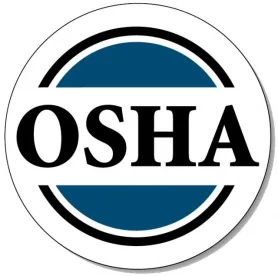On November 4, 2021, the U.S. Department of Labor’s Occupational Safety and Health Administration announced a new emergency temporary standard (ETS) for the stated purpose of protecting more than 84 million workers from the spread of the coronavirus on the job.
The OSHA ETS
The ETS currently covers employers with 100 or more employees but may be expanded to cover employers with less than 100 employees. The ETS also requires employers to provide paid time to workers to be vaccinated and to allow for paid leave to recover from any side effects.
Under the ETS standard, covered employers must develop, implement and enforce a mandatory COVID-19 vaccination policy, unless they adopt a policy requiring employees to choose to either be vaccinated or undergo regular COVID-19 testing and wear a face covering at work.
The deadline for employers to comply with the ETS is January 4, 2022.
ETS Temporarily Halted
On November 6, 2021, the Fifth Circuit Court of Appeals temporarily halted the mandate because of possible grave statutory and constitutional issues with it. The Biden Administration has indicated that it is confident that the mandate will survive legal challenges to it and employers and employees need to be prepared in the event the mandate is upheld.
Notably, the ETS also requires employers to do the following:
-
Determine the vaccination status of each employee, obtain acceptable proof of vaccination status from vaccinated employees and maintain records and a roster of each employee’s vaccination status.
-
Require employees to provide prompt notice when they test positive for COVID-19 or are diagnosed with COVID-19. Employers must then remove the employee from the workplace, regardless of vaccination status, and employers must not allow them to return to work until they meet required criteria.
-
Ensure each worker who is not fully vaccinated is tested for COVID-19 at least weekly (if the worker is in the workplace at least once a week) or within seven (7) days before returning to work (if the worker is away from the workplace for a week or longer).
-
Ensure that, in most circumstances, each employee who has not been fully vaccinated wears a face covering when indoors or when occupying a vehicle with another person for work purposes.
The ETS does not require employers to pay for testing. Employers may be required to pay for testing to comply with other laws, regulations, collective bargaining agreements, or other collectively negotiated agreements. Employers are also not required to pay for face coverings.
Requirements for Health Care Workers
In addition, the Centers for Medicare & Medicaid Assistance (CMS) has announced a rule requiring health care workers at health care facilities participating in the Medicare and Medicaid programs to be vaccinated.
The foregoing rules have potentially significant ramifications for both employers and employees. As examples:
-
What happens if employees refuse to be vaccinated/tested and because of a resulting labor shortage, the employer cannot fulfill its contractual obligations to a customer–can the employer invoke force majeure provisions in a contract?
-
What if the employer has no choice but to cease operations due to a labor shortage resulting in a lack of revenue to pay debt service on a loan?
-
Can employees who refuse to be vaccinated for health or religious reasons be terminated by the employer, and, if so, is the employee entitled to unemployment compensation?
-
What if an employee has a severe reaction to the vaccine and misses work for several weeks or worse, becomes disabled or dies is the employee entitled to workers compensation in addition to any unpaid sick leave benefits?
-
What happens if an employer that is a business entity refuses to comply with the mandate and is consequently fined, is there any personal liability for the owners?
-
What if an employer has legally hired immigrants who have come into this country and have been relocated with the support of the Federal government, which apparently has not mandated that they be vaccinated?
-
What happens if health care facilities lose employees who refuse to be vaccinated and the facilities cannot operate in compliance with applicable laws and regulations or without incurring a substantial increase in malpractice exposure?



 />i
/>i
